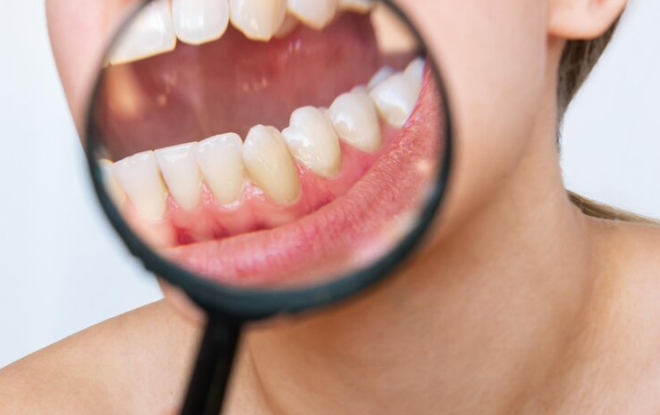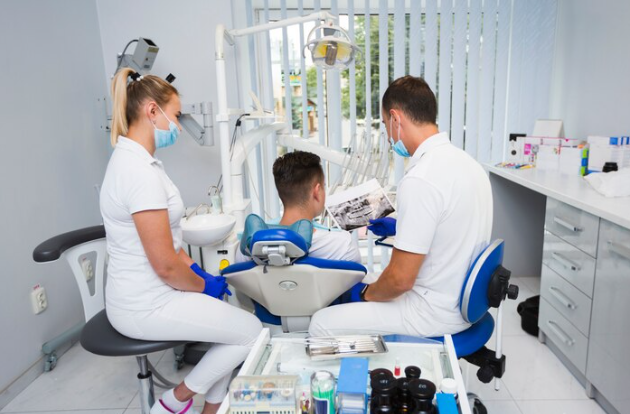
A child’s smile is more than just adorable; it’s a foundation for lifelong health and confidence. Early childhood is a critical time for building habits that support strong, healthy teeth and gums. Oral health in these formative years goes beyond preventing cavities—it lays the groundwork for overall well-being. From the first baby tooth to that first visit to the dentist, every step in early dental care has lasting benefits.
By understanding the importance of regular check-ups, good nutrition, and proper brushing techniques, parents can set their children up for a lifetime of smiles. Let’s explore how nurturing oral health in childhood creates lasting habits, fosters confidence, and promotes a future filled with bright, healthy smiles. After all, good dental care isn’t just about teeth—it’s about empowering children to thrive.
When should I start taking my child to the Dentist?
It is recommended that your child be taken to the Dentist by their first birthday or within six months of their first tooth eruption. Early visits allow the Dentist to monitor your child’s dental development, provide tips on proper oral care, and offer guidance on teething, pacifier use, and bottle-feeding habits. These early visits help create a positive experience, reducing fears of the Dentist as they grow older.
Regular dental check-ups should continue every six months after the first visit to ensure your child’s teeth are developing properly. Early dental visits can help prevent issues like cavities and misaligned teeth, ensuring a strong foundation for lifelong oral health. Starting early teaches your child the importance of good oral hygiene and helps them develop a healthy, confident smile.
What are the best ways to prevent tooth decay in young children?
Preventing tooth decay in young children is essential for maintaining their oral health. Here are some of the best ways to keep their teeth healthy:
- Start Brushing Early: Begin brushing your child’s teeth as soon as they erupt. Use a soft-bristled toothbrush and a small amount of fluoride toothpaste (about the size of a grain of rice for children under 3).
- Floss Regularly: Once your child’s teeth start to touch, begin flossing daily to remove plaque and food particles between teeth.
- Limit Sugary Snacks: Reduce sugary snacks and drinks, contributing to plaque buildup and cavities. Offer healthier alternatives like fruits, vegetables, and water.
- Encourage Healthy Eating: Include calcium-rich foods like milk, cheese, and yogurt, as well as crunchy vegetables and fruits that help clean teeth naturally.
- Use Fluoride: Ensure your child drinks fluoridated water or use a mouth rinse. Fluoride helps prevent cavities and strengthens enamel.
- Visit the Dentist Early: Take your child to the Dentist by their first birthday or when their first tooth appears. Regular check-ups help spot issues early.
- Avoid Prolonged Bottle Use: Avoid putting your child to bed with a bottle, especially with sugary liquids, to prevent “bottle decay.”
By following these steps, you can significantly reduce the risk of tooth decay and promote long-term oral health for your child.
How can I help my child develop good oral hygiene habits?
Helping your child develop good oral hygiene habits ensures long-term oral health. Here are effective strategies to encourage healthy habits:
- Start Early: Begin brushing your child’s teeth when the first tooth erupts. Use a soft-bristled toothbrush and fluoride toothpaste. This sets the foundation for good oral care.
- Make Brushing Fun: Make tooth brushing an enjoyable routine by using fun toothbrushes or appealing flavors. Singing songs or playing videos can help keep them engaged.
- Set a Routine: Establish a consistent brushing schedule — brush your teeth twice daily, after breakfast and before bed. Make it part of their daily routine, so it becomes a habit.
- Lead by Example: Brush your teeth alongside your child. Children learn by watching, so demonstrating proper brushing and flossing techniques reinforces the importance of oral hygiene.
- Educate Them: Teach your child why brushing and flossing are important. Explain how they keep their teeth healthy and help prevent cavities.
- Use Positive Reinforcement: Reward your child for consistently brushing their teeth, whether with praise, stickers, or a small treat, to encourage responsibility.
- Regular Dental Visits: Take your child to the Dentist regularly for check-ups and cleanings. Positive experiences at the Dentist can help them understand the importance of oral health.
By setting a good example and creating a fun, positive environment around oral hygiene, you can help your child develop lifelong healthy habits.
What are the signs of dental problems in infants and toddlers?
It’s important to watch for signs of dental problems in infants and toddlers to ensure early intervention. Here are some key indicators:
- Persistent Fussiness or Irritability: If your child seems unusually cranky or has trouble sleeping, it could be due to teething pain or discomfort from dental issues.
- Red or Swollen Gums: Inflamed or swollen gums, especially around the emerging teeth, could indicate teething or an infection in the gums.
- Excessive Drooling: While drooling is common during teething, excessive drooling could signal dental discomfort or issues such as cavities.
- Changes in Eating Habits: Difficulty chewing or reluctance to eat certain foods could indicate tooth pain, cavities, or gum infection.
- Discolored or Spotty Teeth: White, yellow, or brown spots on your child’s teeth could be a sign of tooth decay or enamel issues, which need to be addressed by a dentist.
- Bad Breath: Persistent bad breath (halitosis) can indicate gum disease, tooth decay, or an oral infection, even in young children.
- Visible Cavities or Holes in Teeth: If you notice visible cavities or holes in your child’s teeth, it’s important to seek dental care immediately.
- Unusual Bumps or Sores: Bumps, sores, or lesions on the gums or inside the mouth could indicate an infection or a more serious dental issue.
If you notice any of these signs, it’s important to consult a pediatric dentist for early diagnosis and treatment.
Start Your Child’s Journey to Healthy Smiles Today!
At Gentle Touch Family Dentistry, a lifetime of healthy smiles starts with early dental care. Starting your child’s dental journey early helps lay the foundation for strong teeth and gums, setting them up for a lifetime of good oral health. Our compassionate team provides gentle, kid-friendly dental visits that make your child feel comfortable and confident.
From their first tooth to their teen years, we offer comprehensive care, including check-ups, cleanings, and education on proper oral hygiene. Visit us at Gentle Touch Family Dentistry and give your child the gift of a lifetime of smiles!



